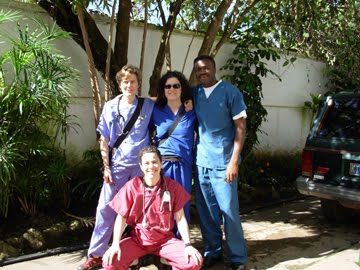In their own words….with my own eyes.
Thirty minutes drive out; I was already into a place where life still reflected below poverty level. Actually, it came as a surprised to me, as well. However, I expected some of what I saw. There were villages here and there, with some healthcare facilities servicing the population as best as they can. They have very limited resources, supplies, not to mention a remarkable lack of two main active ingredients. First is the obvious lack of quality of health. This is demonstrated by the meager, and very miserably equipment such as beds, birthing tables, etc. The facility itself is far desirable because and under termites assault ready to crumble. Again, they serve as best as they can with what they have.
Second lacking ingredient, is a trained medical personnel. Out there, the health authorities don’t care much about checking credentials. Therefore, even a nurse assistant can pass for a doctor. The locals don’t have a choice but accept what is offered them by a disorganized and uncaring health system.
My conversations the “medical personnel” was enriching. One acknowledges being a student in medicine but has been unable to continue school, another declared to me that she used to work for the government but got fed up with its bureaucracy. They all proved to have great compassion for the people even though they lack the basics in medical adequate quality care. They are “forgotten”.
A “doctor’s” consultation is seemingly the easiest one for them to have. As far as lab analyses and appropriate treatment, I tell a difficult story. Patients walk the miles to find places where they can have some labs done; although, viability is questionable. Patients walk the miles to purchase medications needed for administration in the care facility. It seems to me that everything is hard work for both the “medical personnel” and the patients. But the patients are put in great danger because of the incompetence of the so called doctors and nurses and the irresponsibility of the authorities.
